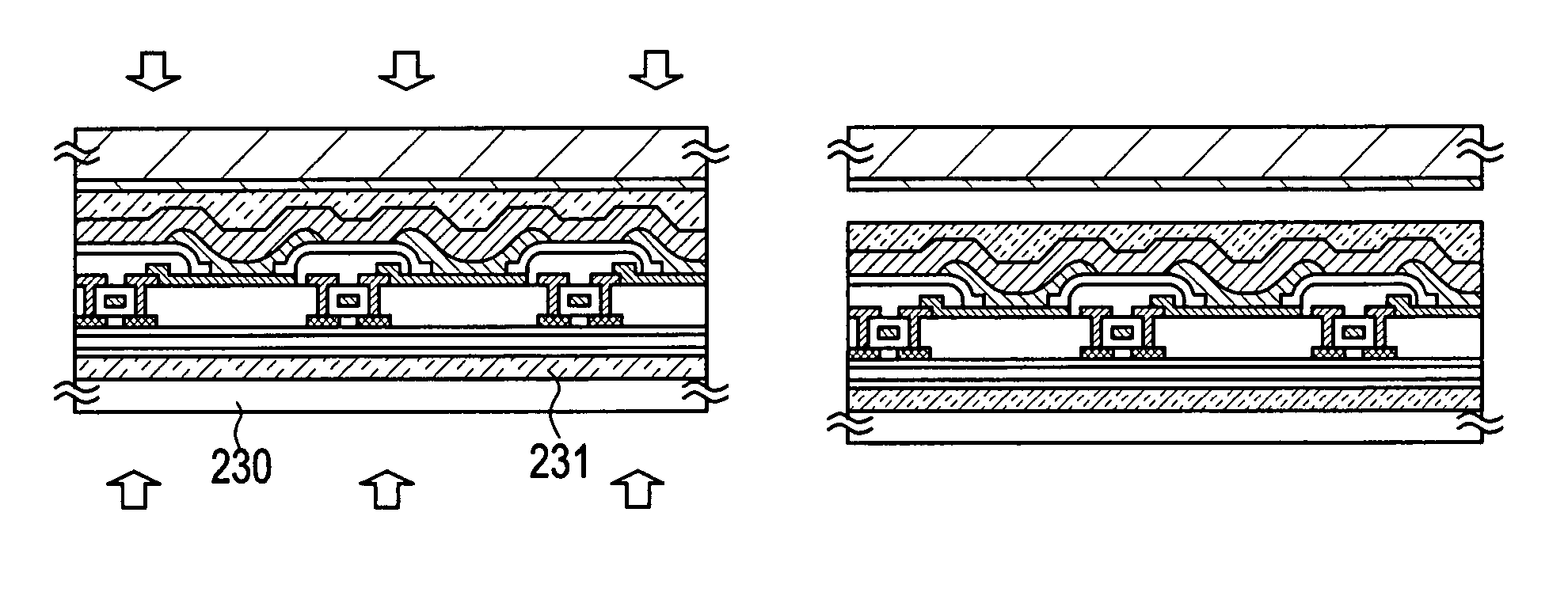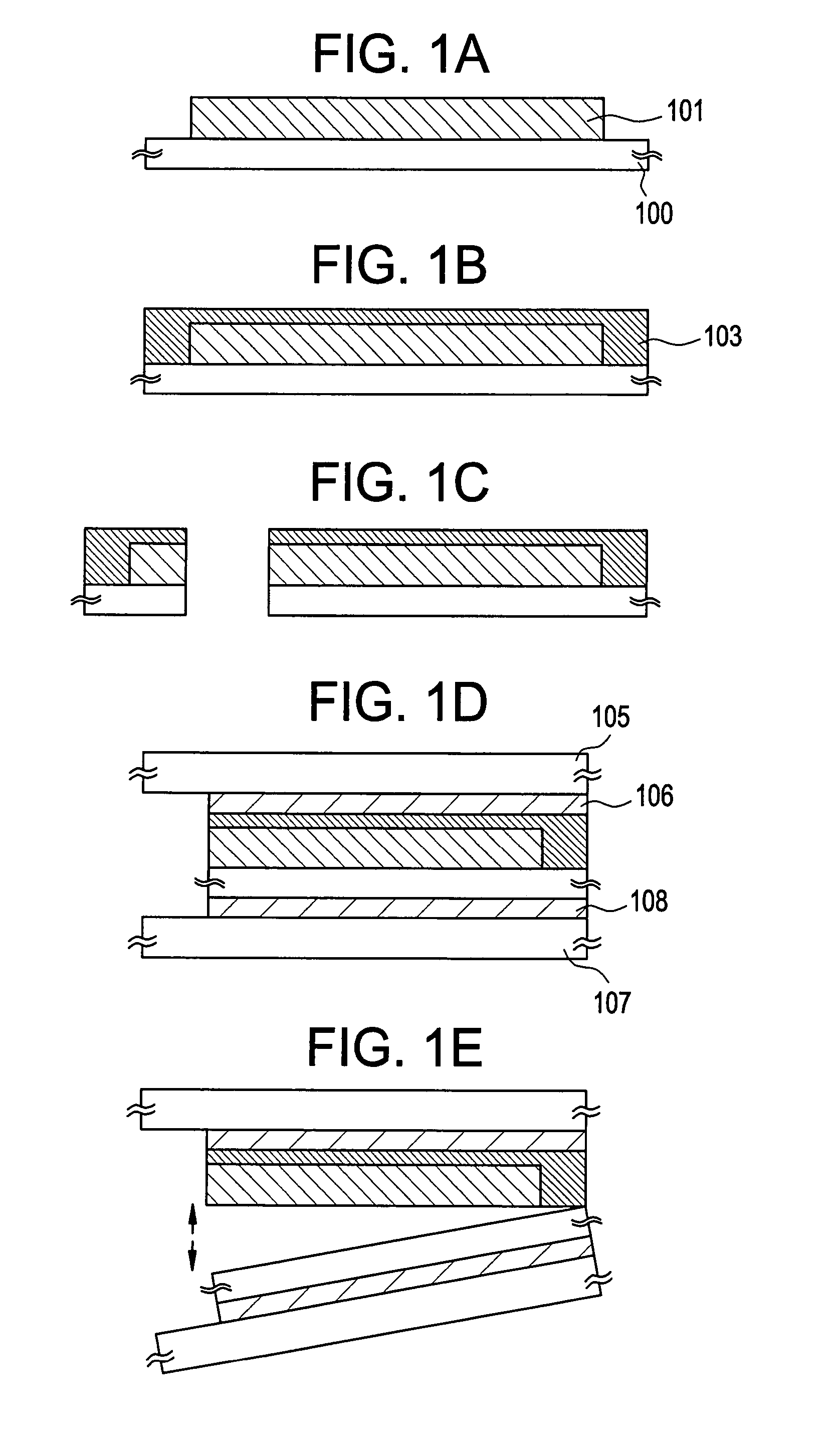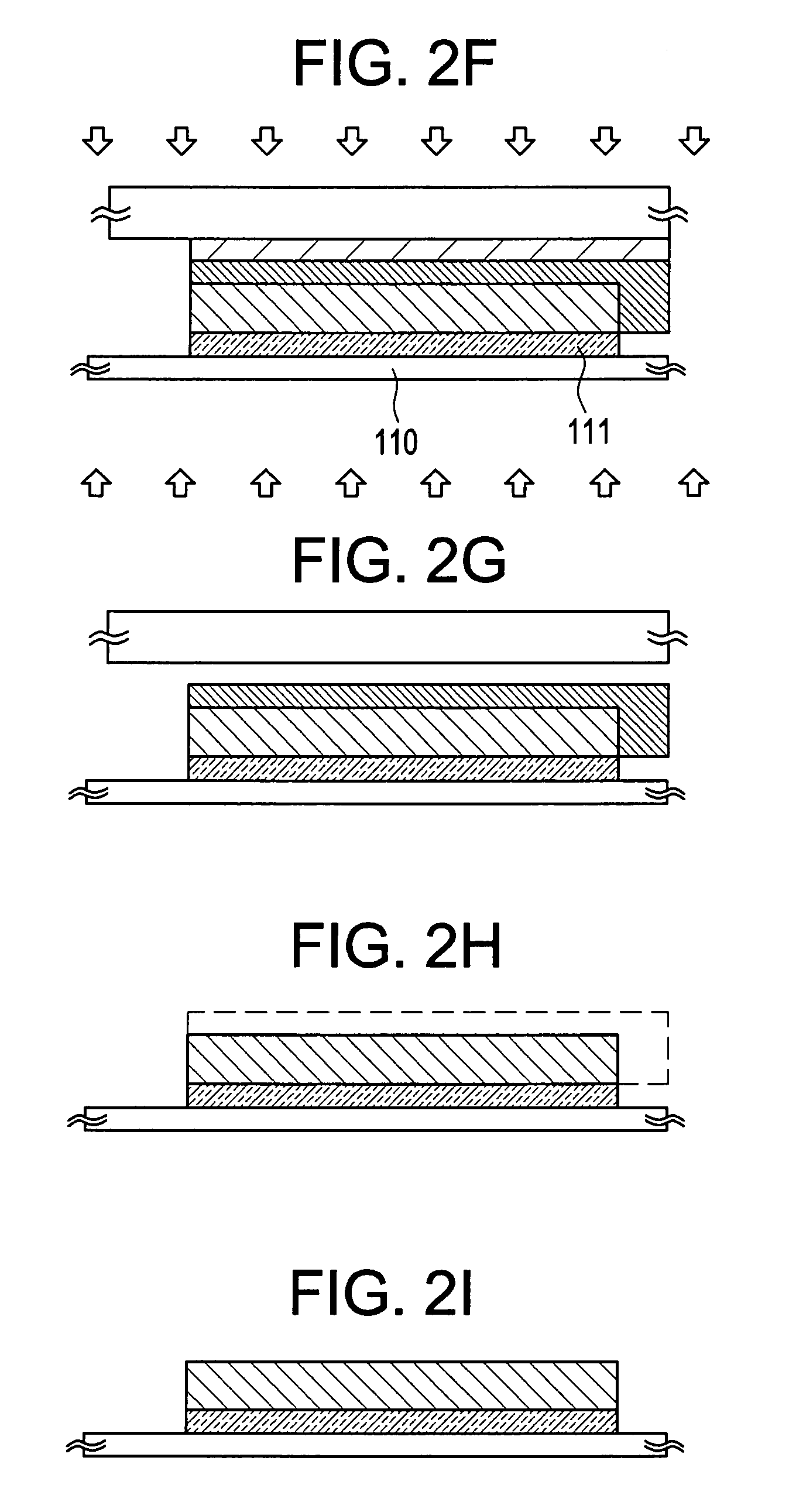Peeling method and method for manufacturing display device using the peeling method
a technology of peeling and manufacturing display devices, applied in the direction of identification means, instruments, optics, etc., to achieve the effects of reducing cost, reducing yield, and simplifying the curing of adhesives for transferring
- Summary
- Abstract
- Description
- Claims
- Application Information
AI Technical Summary
Benefits of technology
Problems solved by technology
Method used
Image
Examples
embodiment mode 1
[0046]In the present embodiment mode, a peel-off layer is in a state in which up to a light emitting element and a liquid crystal element are formed, and an example of a specific peeling process m the case of performing peeling and transferring and of forming a top emission light emitting device according to the peeling process of the present invention is described.
[0047]As shown in FIG. 3(A), a metal film 201 is formed on a first substrate 200. In the embodiment mode, a glass substrate with a film thickness of approximately 0.5 to 1.0 mm is utilized for the first substrate. As for the metal film, a monolayer or a lamination layer comprising an alloy material or a compound material of W, Ti, Ta, Mo, Nd, Ni, Co, Zr, Zn, Ru, Rh, Pd, Os and Ir or containing the element as its main component can be used. Sputtering may be used as a manufacturing method for the metal film on the first substrate using metal as a target. In addition, a film thickness of the metal film is 10 nm to 200 nm, p...
embodiment mode 2
[0079]In the present embodiment mode, a peel-off layer is in a state in which up to a light emitting element and a liquid crystal element are formed. A case of performing peeling and transferring, that is, an example of manufacturing a bottom emission light emitting device by using a peeling process of controlling adhesiveness of an adhesive by adding an ultraviolet ray and heat is described. In addition, description of process or materials as in the embodiment mode 1 is omitted.
[0080]At first, to a protective film 215 are formed as the embodiment mode 1 (FIG. 4(A)). However, it is necessary to use a material having light-transmitting properties for a electrode 204 because it is a bottom emission light emitting device. In addition, although a stress relaxation material may be provided, it is not particularly provided in the present embodiment mode.
[0081]Next, as shown in FIG. 4(B), a second substrate 220 is fixed on the protective film 215 using a two-sided tape as an adhesive, then...
embodiment mode 3
[0087]In the present embodiment mode, a peel-off layer is in a state in which up to a semiconductor element, an electrode, an insulating film and the like are formed, and a method for manufacturing a light emitting device when peeling and transferring are performed is described.
[0088]As shown in FIG. 12(A), a metal film 201 is formed on a first substrate 200. In the present embodiment mode, a glass substrate with a thickness of about 0.5 to 1.0 mm is utilized As for the metal film, a monolayer or a lamination layer comprising an alloy material or a compound material of W, Ti, Ta, Mo, Nd, Ni, Co, Zr, Zn, Ru, Rh, Pd, Os and Ir or containing the element as its main component can be used. The metal film may be formed over the first substrate by sputtering using metal as a target. Note that the film thickness of the metal film shall be 10 nm to 200 nm, preferably be 50 nm to 75 nm.
[0089]When a metal alloy of the aforementioned metal (for example, an alloy of W and Mo: WxMo1-x) is used fo...
PUM
| Property | Measurement | Unit |
|---|---|---|
| wavelength | aaaaa | aaaaa |
| wavelength | aaaaa | aaaaa |
Abstract
Description
Claims
Application Information
 Login to View More
Login to View More - R&D
- Intellectual Property
- Life Sciences
- Materials
- Tech Scout
- Unparalleled Data Quality
- Higher Quality Content
- 60% Fewer Hallucinations
Browse by: Latest US Patents, China's latest patents, Technical Efficacy Thesaurus, Application Domain, Technology Topic, Popular Technical Reports.
© 2025 PatSnap. All rights reserved.Legal|Privacy policy|Modern Slavery Act Transparency Statement|Sitemap|About US| Contact US: help@patsnap.com



